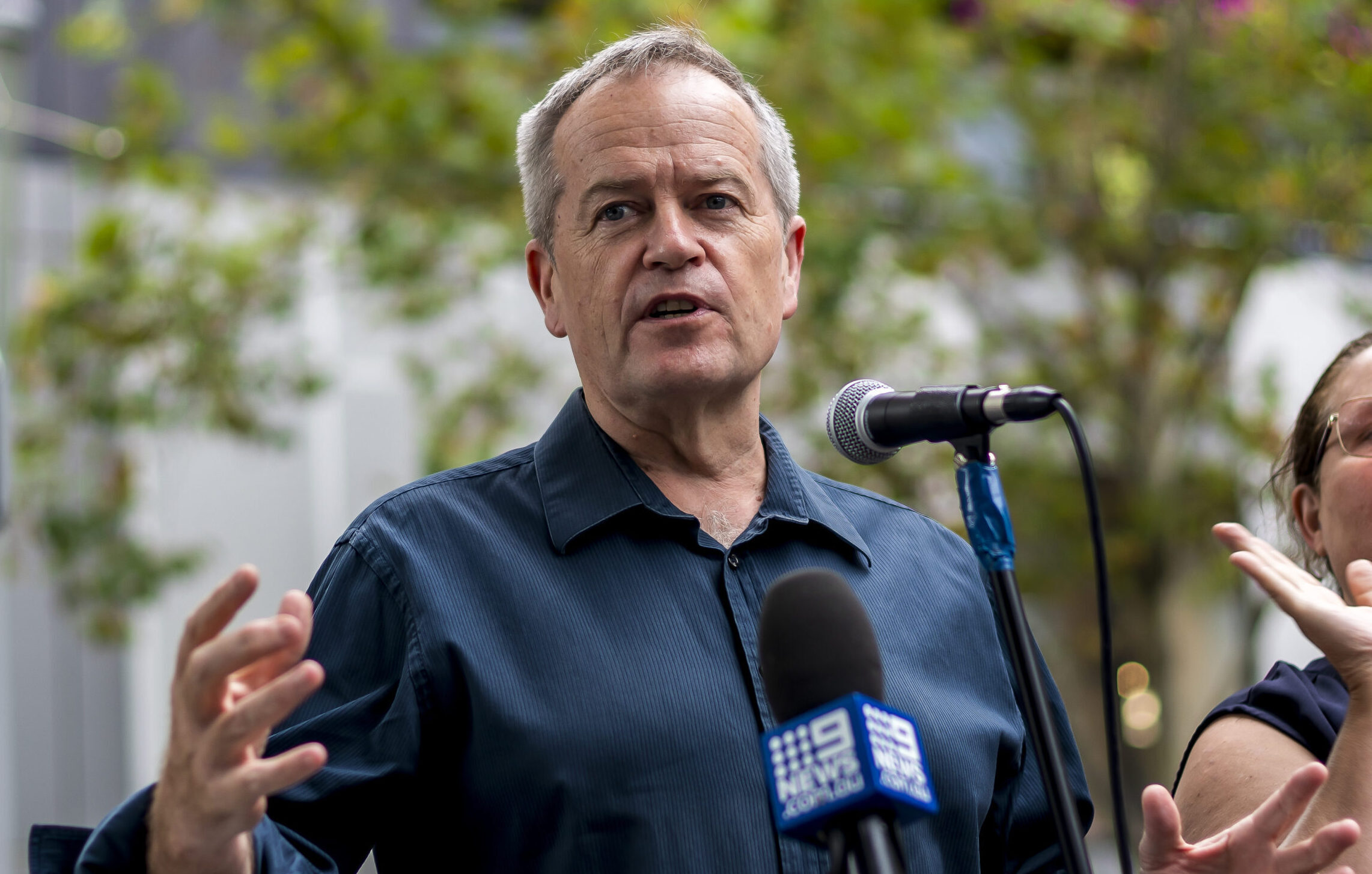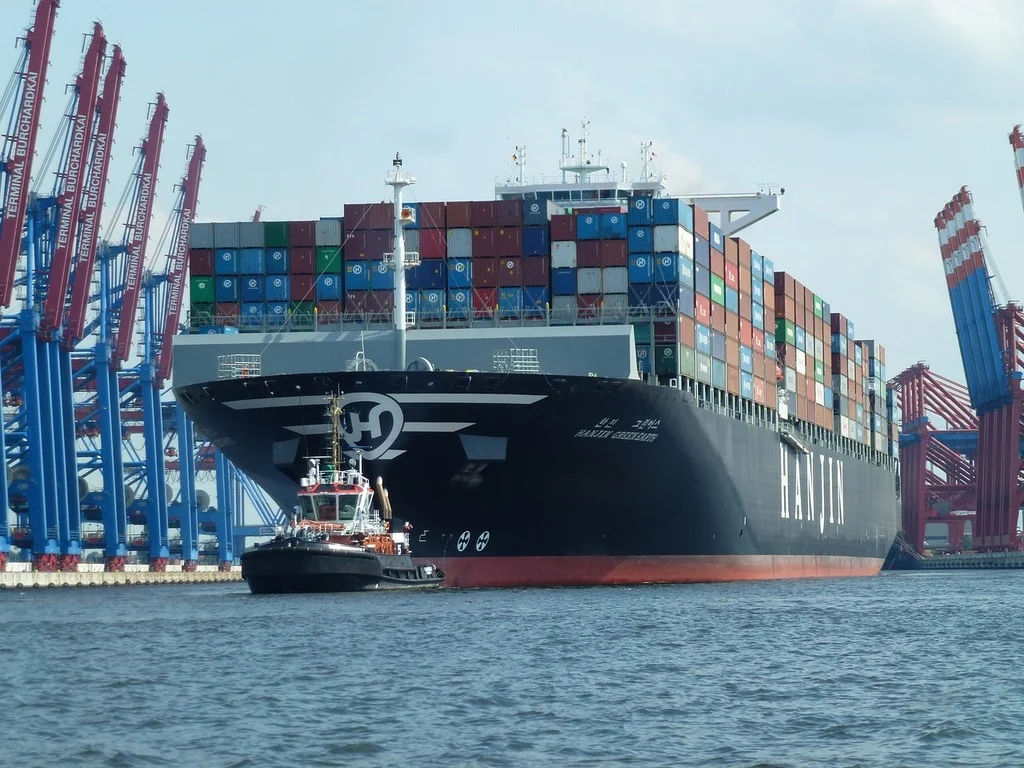Vice Chancellor of the University of Canberra and former Leader of the Opposition the Honourable Bill Shorten argues that our universities need to be updated to better handle a strategically complex world. This is an abridged version of Shorten’s speech delivered to the AIIA ACT Branch Annual Dinner on 18 September 2025. The full speech can be found here.
[Last week] I travelled to war-torn Kyiv at the invitation of a Ukrainian think tank. My time in Kyiv was an epiphany. I met hundreds of brave Ukrainians. Young political leaders in their 20s who have had their lives brutally and permanently changed. University students the same age and with the same dreams as those at the University of Canberra until the Russian invasion.
I met Eddy Scott, a British volunteer medic who, on 30 Jan – around the same time I started as Vice-Chancellor of the University of Canberra – was hit by a Russian drone as he was evacuating people from Pokrovska. He has been well cared for, and the “Superhumans” centre for war trauma has fitted him with state-of-the-art prosthetics built with Ukrainian technology.
I spoke to the Director of the Kyiv School of Economics lecturer who told me 15 percent of students in his MBA courses had been killed.
I learned that when Ukraine found itself at the whim of unpredictable external munitions supply chains and mercurial politicians, it ramped up its domestic drone manufacturing capability from none, four years ago, to 3.5 million per year.
The structural fragility of the Australian Economy
I want to start a conversation that is informed by a sense of urgency and a desire to serve our nation. Our possession of a continent, rich in natural resources, can no longer be reliant on our distance alone for security. We find ourselves in a world of escalating strategic competition, where economic resilience is a core pillar of national security.
Australia, in this new, demanding environment, is carrying a profound structural vulnerability. For all our wealth, for all our talent, our economy is dangerously simple. The Harvard Kennedy School’s Economic Complexity Index – a powerful predictor of a nation’s resilience – ranks Australia an alarming 105th in the world out of 145. We have become a nation with a world-class campus but no factories: a quarry but no forge.
The structural fragility of our economy is the single greatest threat to our long-term security. Our university sector, the engine room of our national intellect, is crucial to solving this crisis but, in its current form, is a reflection of it. This is no longer just a matter of educational policy, but one of national survival: in an era of profound geopolitical uncertainty, is it time to fundamentally re-imagine our universities as a core instrument of our national power?
A new architecture for learning
We must be bold. We need to dismantle the analogue structure and replace it with a new architecture for learning. Faster learning pathways that speed up knowledge and skill acquisition to meet industry needs – just-in-time modular, agile. Personalised learning – upskilling the existing workforce to capitalise on new technologies, approaches and knowledge.
First, we must break the monopoly of the three-year degree as the primary unit of educational currency. The future of learning is not monolithic; it is modular. We must continue to build a system of stackable credentials and accredited units, that lead to subject credits, that lead to sub-degree qualifications, that lead to degrees. This is not about devaluing a full university education; it is about creating multiple, flexible entry pathways and exit points to achieve it.
While the structures I’ve referred to are critical to our collective future, they do not diminish the importance of education. At a time of geopolitical and societal challenges and threats to the foundations of liberal democracy, we need the humanities and social sciences more than ever. This is exemplified by the looming AI revolution and the increasing centrality of cognitive skills, critical thinking, communication and the ability to learn to learn.
Imagine a defence industry worker in Adelaide. They don’t have three years to learn about quantum mechanics but they have a wealth of skills and experience and 4-6 weeks to complete a micro-credential co-designed with industry and defence to fill identified gaps. That credential could be stacked to others, give them credit towards a Graduate Certificate in Strategic Technologies, which in turn could set them on the three-year path to a Master’s degree if that is what they need. This is a system that builds skills at the speed of relevance, providing the workforce for AUKUS Pillar II not in a decade, but now. This is a recognition that today not only school leavers can benefit from university.
Second, we must use technology to move beyond the industrial-era model of batch-processing students. The current system is designed assuming everyone commencing study knows nothing. This is a profound waste of human potential and time.
We have the technology today to assess existing skills and create an individualised learning pathway for every student. A defence veteran entering a cybersecurity degree already possesses a deep, practical understanding of risk management and operational security. Why force them to sit through first-year subjects covering these basics? An AI-driven diagnostic tool could assess their existing competencies – formally known as and build a bespoke degree structure focusing only on the knowledge gaps.
Jobs and Skills Australia is currently looking into a national skills passport which was an idea floated in the Universities Accord Interim Report. This would support a more joined-up national skills system in Australia.
This brings us to the third, and perhaps most challenging, piece of the puzzle: the social contract. Our current system is a paradox. We tell our young people that a university education is the key to their future, then saddle them with a debt that mortgages that very future. We need more Commonwealth Supported Places.
A reimagined university system requires a reimagined funding model. If a particular skill – teaching STEM, artificial intelligence, or trauma-informed healthcare – is deemed a national priority, then the nation should share the risk of developing it. A “National Skills Bursary” co-funded by government and industry, where companies in the health, defence technology, and resources sectors directly subsidise the micro-credentials they need, would remove the debt burden from the individual.
Higher education as diplomacy
And we must not underestimate the role universities can play in international relations through soft diplomacy – though some argue the name downplays its impact.
The original Colombo Plan was groundbreaking in its benefit to economic cooperation and social progress in the Asia Pacific but also positioned Australia as part of the ‘neighbourhood’. It created lifelong affection and gratitude for Australia and Australian friendships, networks, mentors and collaborators for many of the current leaders and innovators in the Indo-Pacific, as well as deep cultural understanding of Australia. The Plan was revived by the Abbott Government in 2014, but this time we also sent Australian students to the Indo-Pacific. A two-way exchange improved Australia’s overall Asia literacy and enhanced our reputation as a regionally engaged and like-minded partner.
It is right to recognise the work of the Albanese Government – especially that of the Prime Minister, Foreign Minister Penny Wong, Defence Minister Richard Marles, Minister for International Development and the Pacific and Defence Industry, Pat Conroy – in deepening connections with the Pacific family to achieve our shared goal of a peaceful, prosperous and resilient region.
Today, there is growing evidence that universities can make strong connections in the region and support the development of neighbouring countries. Our expertise can be employed across a range of current and emerging issues in our region – bio-security, climate change, poverty reduction, health, aged care and education among them. While collaborative research builds joint knowledge and capacity. It is not just a moral obligation of our wealthy nation to assist developing economies; being a good neighbour is a preventive national security measure. To support the economic and social wellbeing of neighbouring populations and to see them thrive is preferable to dealing with a potentially failing state.
Difficult Questions
It’s time to open the dialogue on whether our current higher education structure is fit for purpose and to ask whether we continue to put difficult questions in the too hard basket for fear of disrupting the status quo.
First, should we create a stream of specialist universities?
Why shouldn’t Australia have a national University of Advanced Technologies focused, laser-like, on the engineering, computing, and physics skills required for our sovereign defence industry? Why not a national Health Sciences University, dedicated to tackling the complex challenges of an ageing population and future pandemics? Or alternatively differentiated universities as opposed to every university trying to be comprehensive.
Such institutions would concentrate our finite research funding and talent, creating genuine, world-leading centres of excellence, rather than dozens of competing, under-resourced departments.
Second, should we create a well-resourced stream of universities that demand and reward excellent teaching?
The vast majority of undergraduate students need and deserve pedagogical excellence. Not just proximity to a research lab. What differentiates universities from TAFE is research-led teaching that incorporates the latest research and research inquiry methods, drawing on case studies and data from research to develop analysis, evaluation and critical thinking skills.
By definition in Australia at the moment a university must produce above world class research in more than 50 percent of its teaching areas (TEQSA) A teaching-only university would be full of research consumers rather than knowledge creators.
Why not empower a set of institutions whose growth, funding, and staff promotions would be based on the quality of their teaching and the success of their graduates – rewarded for greater student satisfaction. They would become world leaders in the science of education itself, training the teachers, nurses, and engineers who form the backbone of our society. This is not about creating a two-tiered system; it is about creating a fit-for-purpose system, where excellence is defined by the successful execution of a clear and distinct mission.
And third, how do we overcome the gaping chasm between Australia’s excellent discovery research and our ability to apply and commercialise it?
Our universities do the lion’s share of research in this country. Innovative Research Universities – of which UC is a member – does 25 percent alone. Our focus is on applied research that benefits the communities in which they are based, but also on broader national and global issues.
If we are to go from a mining-based to an advanced manufacturing economy, the university and corporate sectors have to amp up their knowledge transfer. For too long Australia has not reaped the rewards of our universities’ excellence in discovery research. It either goes offshore or falls into the valley of death, never to be seen again.
The idea of specialist universities does not make research and teaching mutually exclusive, rather the differentiation would be complementary and serve the nation in a much more efficient way.
Rebuilding our sovereign capability
This brings me back to my central proposition. Reimagining our modern universities is not simply an educational reform; it is a national security and foreign policy imperative. The new architecture which comes from the questions I have asked is designed to rebuild our sovereign capability from the ground up, addressing the three critical missions our nation requires of its universities.
First, it supports our security aspirations by cultivating a sovereign skills base. The agile, modular system is the way to produce the thousands of nuclear engineers, cyber specialists, and AI technicians that the AUKUS enterprise demands, at a pace that matches the urgency of our strategic environment.
Second, it acts as a bulwark against authoritarianism and radical extremism by embedding critical thinking in every graduate. In an era of rampant deepfakes and “digital pollution”, a system that prioritises evidence-based analysis and intellectual rigour is our most potent defence against the erosion of the shared, verifiable reality that binds our democracy together.
And third, it nurtures the innovation required to build a more resilient and complex economy. This new model is the mechanism by which we finally solve our national paradox. It is the forge that will allow us to turn the raw materials from our quarry into the high-value, sophisticated products of a truly sovereign nation.
Look around at the world and see the disruption – the vagaries of the White House; the attacks on global institutions we have come to trust as safety nets; displaced populations; famine; wars and rumours of wars. There are many people around the world who have disruption forced upon them. But we have nothing to fear from disruption if we are the ones driving it. We have a choice.
Don’t just do what’s doable. Do what needs to be done.
This article is published under a Creative Commons Licence and may be republished with attribution.





